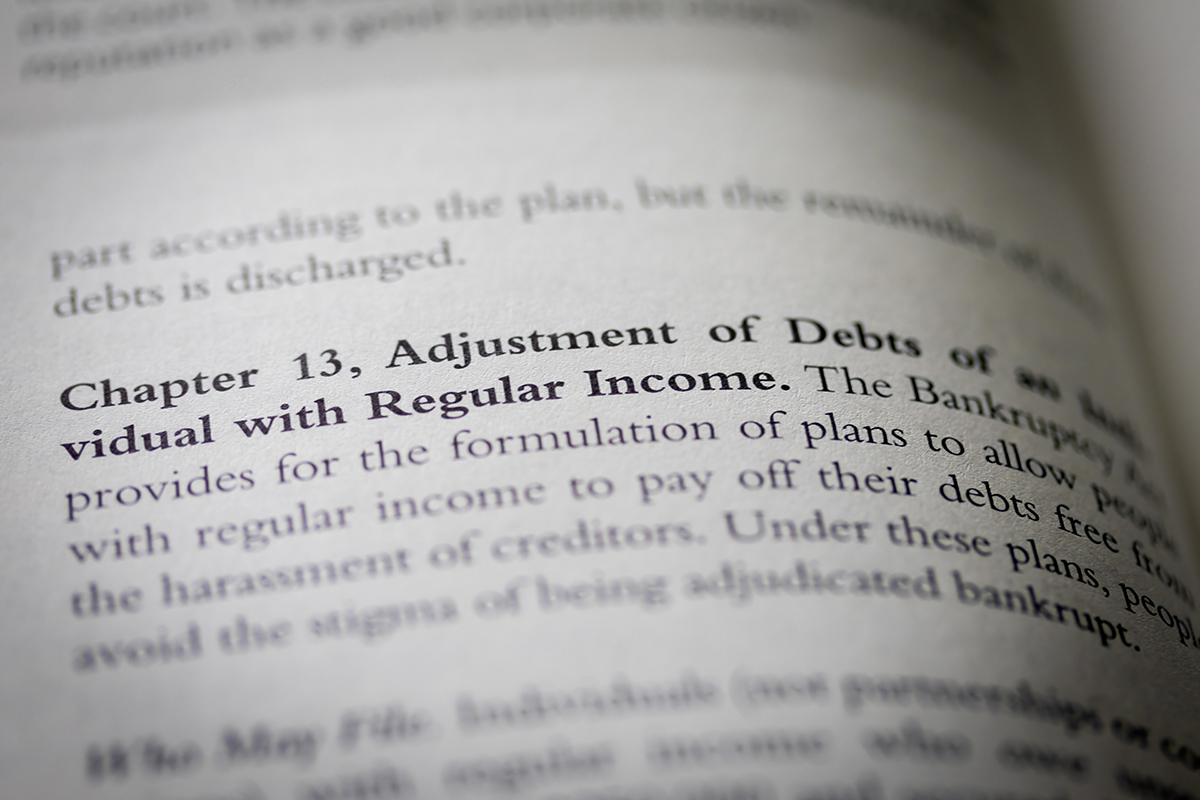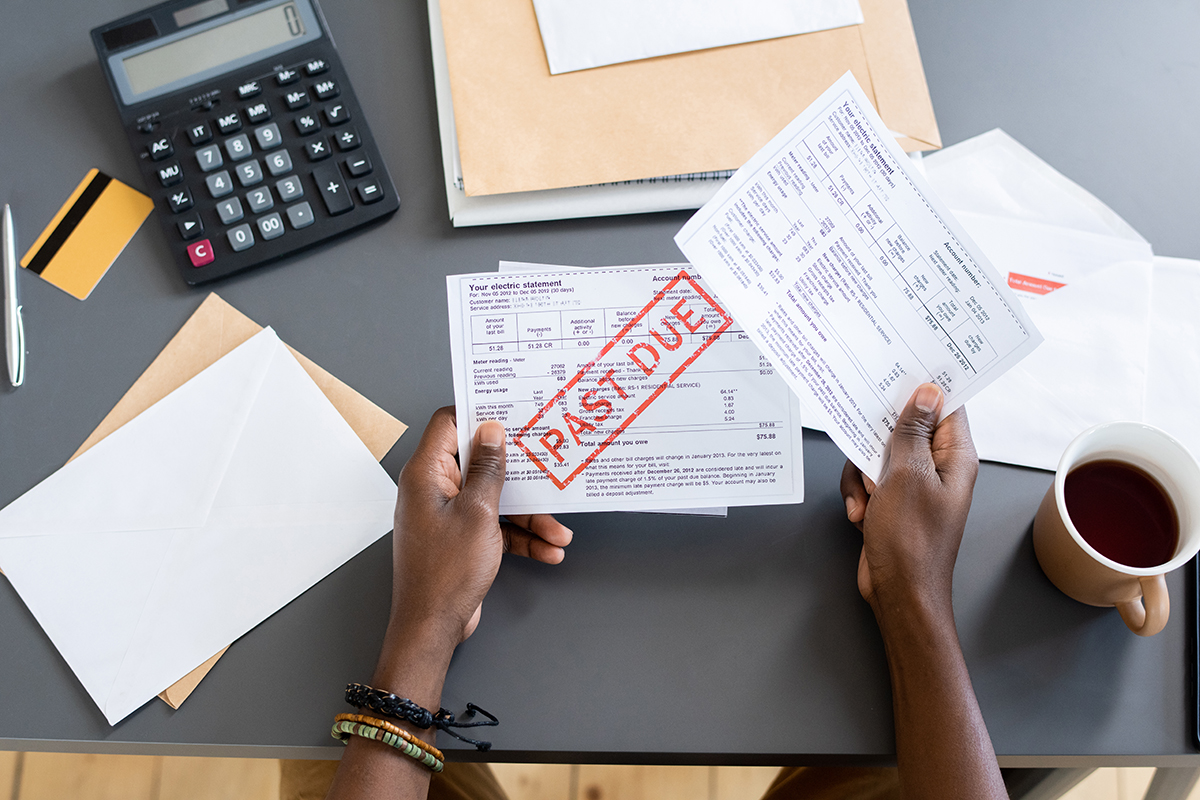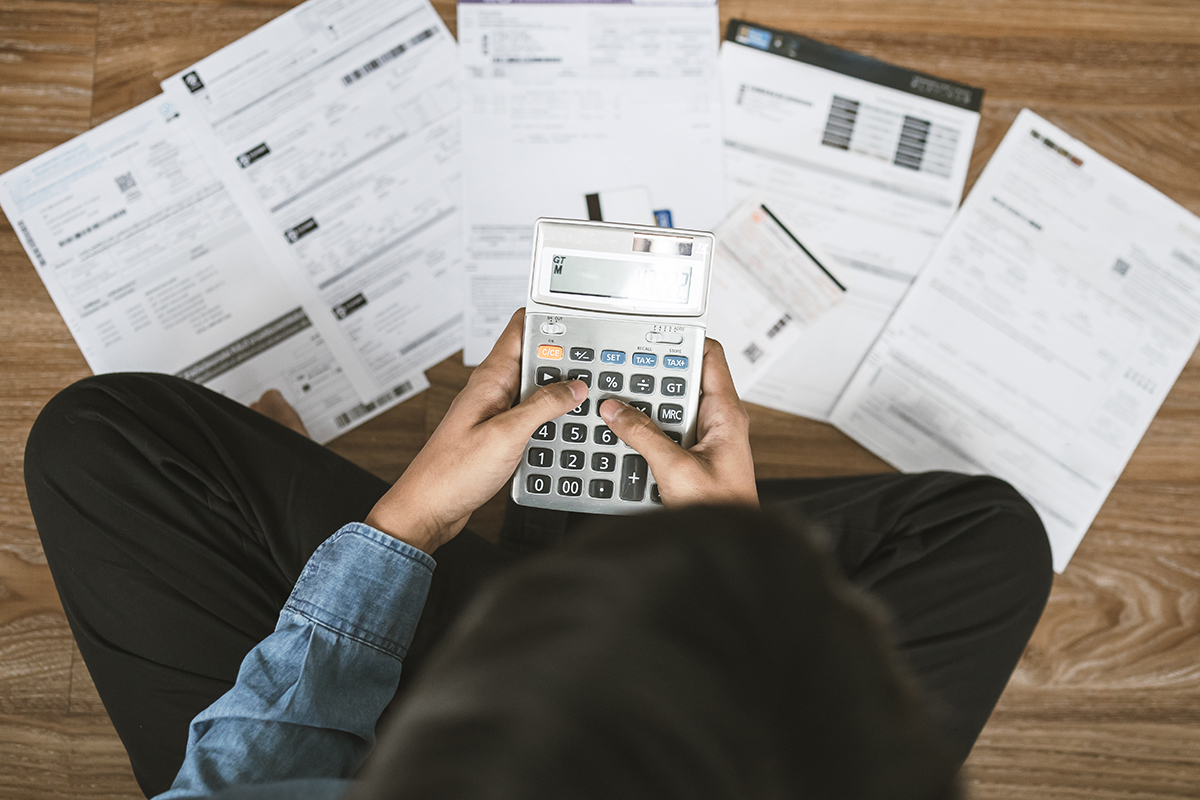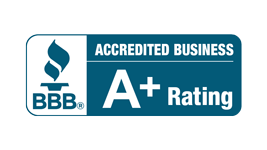Before You File Chapter 13 Bankruptcy...
Filing for bankruptcy is never an easy decision, but for many individuals struggling with debt, Chapter 13 bankruptcy can offer a structured path to financial recovery. Unlike Chapter 7, which involves liquidation, Chapter 13 allows you to reorganize your debts and repay them over time, often while keeping your assets like your home or car.
However, before jumping into the process, it’s necessary to understand what Chapter 13 entails, who qualifies, and how it could impact your financial future. There are key considerations to help you decide if Chapter 13 is the right move for your situation. From eligibility requirements to repayment plans and legal fees, here’s what you need to know before you file.
What is Chapter 13 Bankruptcy?
Chapter 13 bankruptcy, often called the “wage earner’s plan,” is a legal process that allows individuals with regular income to reorganize their debts and pay them back over time, typically within three to five years.
Instead of liquidating your assets like in Chapter 7, Chapter 13 lets you keep your property while making monthly payments to a court-approved trustee who then distributes funds to your creditors.
One of the main advantages of Chapter 13 is its ability to stop foreclosure proceedings. This gives homeowners a chance to catch up on missed mortgage payments without losing their homes. It also provides a structured way to pay off tax debts, car loans, child support, and even certain types of student loans under favorable terms.
Chapter 13 can offer you a second chance to regain control of your finances, provided you meet the requirements and stick to the plan.

Eligibility Criteria For Chapter 13
Before you can file for Chapter 13 bankruptcy, you must meet specific eligibility requirements laid out by federal bankruptcy law.
Here are the primary requirements:
Regular Income
You must have a steady source of income, whether from employment, self-employment, Social Security, disability benefits, or another reliable source. This is essential because your repayment plan will depend on your ability to make consistent monthly payments over the term of the plan.
Debt Limits (as of current thresholds)
Your total debts must fall within certain limits: [1]
- Unsecured debts (like credit cards or medical bills): must be less than $526,700
- Secured debts (like mortgages or car loans): must be less than $1,580,125
These figures are adjusted every few years, so it’s important to check current limits or consult with a bankruptcy attorney.
No Recent Bankruptcy Dismissals
If you had a previous Chapter 13 or Chapter 7 case dismissed within the past 180 days due to willful failure to appear in court or comply with court orders, you may be ineligible to file again within that time frame. [1]
Mandatory Credit Counseling
You must complete a credit counseling course from an approved provider within 180 days before filing. This course is designed to help you explore alternatives to bankruptcy and understand your financial situation more clearly.
Meeting eligibility criteria is the first step in determining whether Chapter 13 is a viable option for you. If you qualify, the next step is to assess your financial picture and determine whether you can realistically meet the demands of a repayment plan.

Financial Evaluation for Chapter 13
Before filing Chapter 13 bankruptcy, it’s critical to take a realistic look at your finances. The success of your case depends largely on your ability to stick to a repayment plan for several years.
Here are the key components to evaluate:
Total Debt Overview
Start by listing all your debts, secured and unsecured. This includes:
- Credit cards
- Medical bills
- Personal loans
- Car loans
- Mortgage arrears
- Taxes and child support
Understanding what you owe will help determine the structure of your repayment plan and whether Chapter 13 is the best route for your situation.
Income Analysis
Next, examine your monthly income from all sources (wages, benefits, side gigs, etc.). Your income needs to be sufficient and stable because it will fund your Chapter 13 plan. The court will want to see that you can afford your monthly payments after covering essential living expenses.
Pros of Filing Chapter 13 Bankruptcy
Filing for bankruptcy is never an easy decision, but sometimes, it’s the most responsible one. If you’re struggling to stay on top of your debts but have a regular income, Chapter 13 bankruptcy might offer a path to financial stability without losing everything you’ve worked for.
1. Stops Foreclosure and Allows You to Keep Your Home
One of the most powerful benefits of Chapter 13 is the automatic stay, which immediately stops foreclosure proceedings once the case is filed. If you’re behind on your mortgage, Chapter 13 allows you to catch up on arrears over time while keeping your home.
2. It Can Restructure or Discharge Certain Debts
Chapter 13 enables you to reorganize unsecured debts (like credit cards and medical bills), sometimes paying only a portion through your repayment plan. Some debts, such as certain tax obligations, can also be restructured to make them more manageable.
3. Protects Co-signers on Consumer Debts
Unlike Chapter 7, Chapter 13 includes a co-debtor stay, which helps shield co-signers (often family or friends) from collection efforts on consumer debts, as long as you stay current on your repayment plan.
4. Catching Up on Missed Payments
If you’ve fallen behind on secured debts like car loans or mortgages, Chapter 13 gives you a structured path to repay those past-due amounts gradually, helping you avoid repossession or foreclosure while staying in control of your assets.

Potential Drawbacks of Filing Chapter 13 Bankruptcy
While Chapter 13 bankruptcy offers many advantages, it’s not without challenges. Before filing, it’s important to weigh the potential downsides so you’re fully prepared for what lies ahead.
1. Long-Term Commitment to a Strict Budget
Chapter 13 repayment plans typically last three to five years, requiring you to stick to a court-approved budget. This means cutting back on non-essential spending and maintaining financial discipline over the long haul.
2. Must Use Disposable Income to Repay Debts
Your repayment plan is based on your disposable income. What is left after covering necessary living expenses? All of that surplus must go toward your debts, leaving little room for unexpected expenses or financial flexibility.
3. It Impacts Your Credit for Up to 7 Years
Like all bankruptcy filings, Chapter 13 will appear on your credit report and can impact your credit score for up to seven years. This may make it more difficult to qualify for loans or favorable interest rates during that period.
4. Court and Trustee Oversight of Your Finances
Throughout the life of your repayment plan, your financial situation is closely monitored by the court and a bankruptcy trustee. You may need approval for major financial decisions, such as taking on new debt or selling property.
Key Financial Considerations Before Filing Chapter 13 Bankruptcy
Before filing for Chapter 13 bankruptcy, it’s necessary to take an honest look at your financial situation. While the process offers protection and structure, success depends on your ability to stay consistent with the repayment plan. Ask yourself the following questions:
Can You Afford the Monthly Plan Realistically?
Chapter 13 requires a regular monthly payment to a bankruptcy trustee, based on your income and living expenses. You need to ensure that the proposed amount is affordable long-term, not just on paper, but in your real-life budget.
Do You Have a Reliable, Steady Income?
This type of bankruptcy is designed for people with a consistent income stream, whether from employment, self-employment, or another reliable source. If your income fluctuates or is unstable, completing the plan could become difficult.
Will Your Plan Survive Unexpected Expenses?
Emergencies happen, such as medical bills, car repairs, or job changes. A good Chapter 13 plan should have some built-in flexibility or at least a backup strategy for dealing with financial surprises without defaulting.
Are You Current on Tax Filings?
The court generally requires you to be up-to-date on your tax returns before your case can move forward. Accurate tax records are used to verify your income and determine how much you can afford to pay through the plan.

Filing for Chapter 13 bankruptcy is a significant financial decision, one that shouldn’t be taken lightly. While it can provide a structured path toward financial stability and protect your most valuable assets, it also comes with long-term responsibilities and challenges.
Before moving forward, take the time to evaluate all your options. Alternatives such as debt consolidation, settlement negotiations, or even Chapter 7 bankruptcy may be more suitable depending on your specific circumstances.
Consult with our Chapter 13 bankruptcy attorneys, who can help you understand how Chapter 13 will impact your specific situation during a free consultation.
Source:
[1] Chapter 13 – Bankruptcy Basics. (n.d.-e). United States Courts. https://www.uscourts.gov/court-programs/bankruptcy/bankruptcy-basics/chapter-13-bankruptcy-basics



